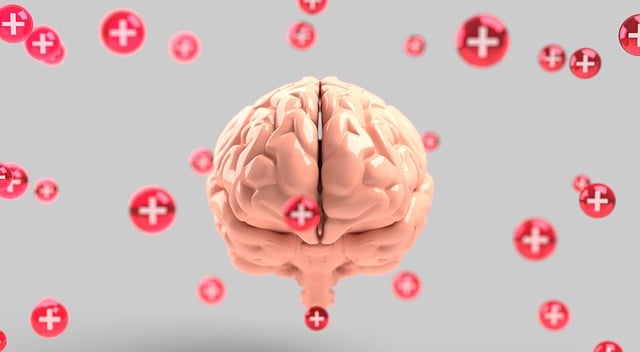Englewood Psychosis Therapy offers crisis intervention services focusing on immediate support, stability, and long-term resilience building for individuals in mental health crises. Their evidence-based approach combines cultural sensitivity, de-escalation techniques, and positive thinking promotion to tailor interventions. Through collaboration with community programs, they provide holistic care, reduce stigma, and empower clients towards recovery. Ongoing care post-intervention includes monitoring, coping strategy development, and support system guidance, ensuring individuals are equipped to manage future challenges effectively.
“In moments of crisis, effective intervention can be a lifeline. This article guides readers through essential strategies for navigating mental health crises, highlighting the pivotal role of Englewood Psychosis Therapy in critical moments. We explore practical assessment techniques for stabilizing individuals, offering insights into post-intervention care and prevention to mitigate future risks. By understanding crisis intervention as a cornerstone of mental health support, professionals can foster resilient outcomes and improve client well-being.”
- Understanding Crisis Intervention: A Cornerstone of Mental Health Support
- The Role of Englewood Psychosis Therapy in Critical Moments
- Practical Strategies for Assessing and Stabilizing Individuals in Crisis
- Post-Intervention Care and Prevention Techniques for Future Crises
Understanding Crisis Intervention: A Cornerstone of Mental Health Support

Crisis intervention is a critical component of mental health support, designed to provide immediate assistance during moments of severe distress or impending danger. It focuses on stabilizing individuals and helping them cope with challenging situations, ultimately preventing further deterioration or harmful behaviors. At Englewood Psychosis Therapy, we recognize that understanding crisis intervention is paramount in fostering effective care and recovery.
This process involves a range of strategies tailored to the unique needs of each individual. Building upon their inner strength development, our trained professionals guide clients through de-escalation techniques, ensuring they feel heard, validated, and supported. Additionally, public awareness campaigns development that promote early intervention can significantly reduce the impact of crises. Encouraging positive thinking and resilience is also a key aspect, empowering individuals to navigate future challenges with greater confidence and coping mechanisms.
The Role of Englewood Psychosis Therapy in Critical Moments

In critical moments, where individuals face severe mental health crises, the role of Englewood Psychosis Therapy becomes increasingly vital. This therapeutic approach is designed to provide immediate and targeted support during such challenging times, focusing on stabilizing symptoms and reconnecting individuals with their communities. The therapy leverages evidence-based practices combined with cultural sensitivity in mental healthcare practice to ensure that interventions are tailored to meet the unique needs of each client. By fostering a supportive environment, it aims to reduce the stigma associated with mental illness, an essential aspect of long-term recovery.
Englewood Psychosis Therapy often involves a collaborative approach, integrating community outreach program implementation to offer comprehensive care. This strategy not only addresses the individual’s immediate crisis but also helps in building resilience and coping mechanisms within the broader community. By empowering individuals to navigate their mental health journeys with dignity and support, this therapy plays a pivotal role in breaking down barriers associated with mental illness, thereby enhancing overall well-being and social integration.
Practical Strategies for Assessing and Stabilizing Individuals in Crisis

When faced with an individual in crisis, a structured and empathetic approach is crucial for effective assessment and stabilization. Professional therapists at Englewood Psychosis Therapy employ a multi-faceted strategy that combines direct observation, active listening, and evidence-based techniques. The initial step involves creating a safe and non-judgmental environment to encourage open communication. This is followed by a comprehensive evaluation of the individual’s symptoms, triggers, and coping mechanisms using tools like structured interviews and behavioral assessments.
Practical strategies include integrating Social Skills Training to enhance communication and interaction, promoting Self-Care Practices tailored to their needs, and implementing Community Outreach Program Implementation for additional support systems. By combining these approaches, therapists aim to stabilize individuals, mitigate risks, and foster resilience, ultimately guiding them towards long-term recovery and improved quality of life.
Post-Intervention Care and Prevention Techniques for Future Crises

After a crisis intervention, providing ongoing care is vital to prevent relapses and promote long-term mental wellness. This phase involves close monitoring, regular check-ins, and supporting individuals in maintaining the progress made during the acute intervention. Techniques such as cognitive-behavioral therapy (CBT), often offered through Englewood Psychosis Therapy, can help individuals identify triggers and develop coping strategies to manage future crises. Engaging in open dialogue through a Mental Wellness Podcast Series Production can also foster emotional healing processes by offering a safe space for sharing experiences and learning from others.
Additionally, crisis intervention guidance should include prevention techniques tailored to the individual’s needs. This may involve setting up support systems, establishing emergency contact lists, and creating personalized plans for de-escalation. By equipping individuals with these tools and resources, Crisis Intervention Guidance can empower them to navigate future challenges more effectively, ultimately reducing the likelihood of additional crises.
In conclusion, crisis intervention plays a pivotal role in mental health support, with strategies like Englewood Psychosis Therapy offering effective guidance during critical moments. By understanding these approaches and implementing practical assessment techniques, professionals can stabilize individuals and prevent future crises. Equally important is post-intervention care, which ensures long-term well-being and fosters resilience. Armed with this knowledge, we can create a more supportive environment for those facing mental health challenges.














